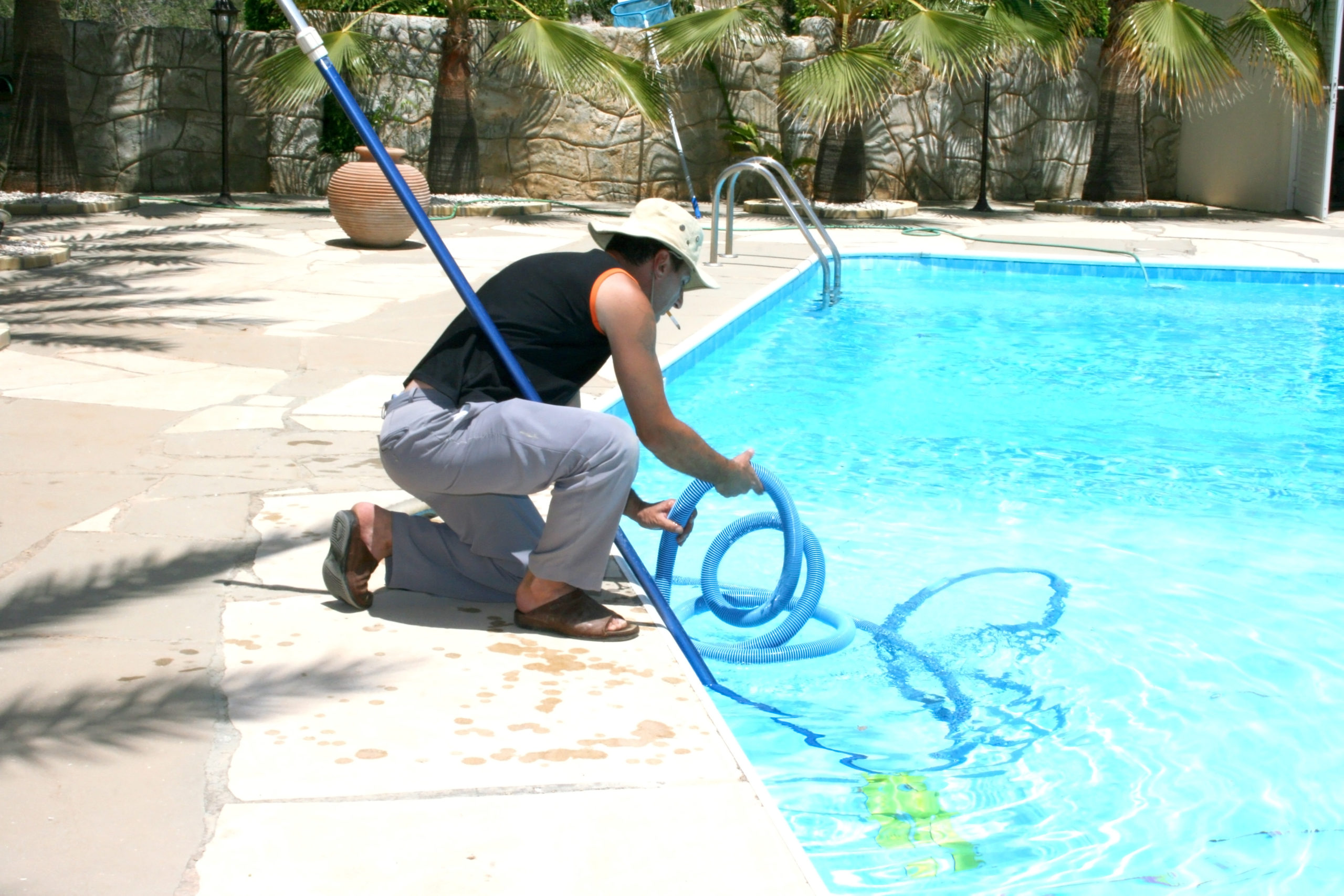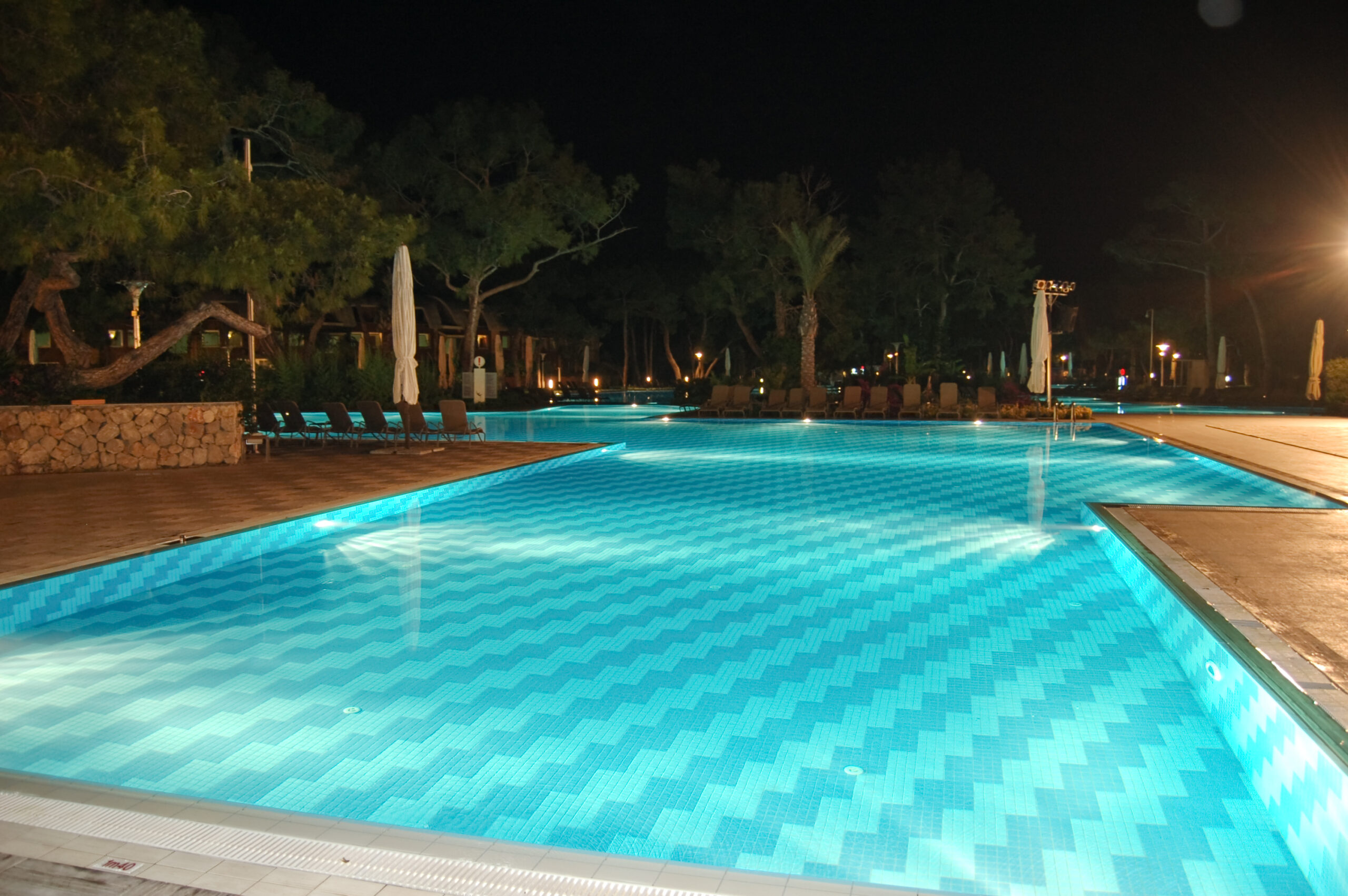You’ve just installed your new pool and you’re ready to dive in. But wait, there’s more to owning a pool than just enjoying the cool water.
In the first month post-completion, understanding key features, maintaining balance, and troubleshooting are crucial.
Don’t worry though! We’ve got you covered with all the essentials to ensure you’ll master your pool care routine in no time.
Ready? Let’s dive into this essential guide for new pool owners.
Understanding Your New Pool: Key Features and Functions
Now that you’ve got your new pool, it’s important to familiarize yourself with its key features and functions. Pool designing is not just about aesthetics; it’s also about creating a safe and functional space for swimming.
Start by understanding the filtration system – this plays a critical role in keeping your pool clean and clear. You’ll need to know how to operate the pump, filter, heater, and chlorinator. Also, grasp the importance of skimmers in removing debris from your pool’s surface.

Next, focus on safety measures. Know where all emergency shut-offs are located for both water flow and electrical systems-such knowledge could prove lifesaving during an unexpected situation. Understand how to properly use accessories like pool covers-they can help maintain temperature control while providing an extra layer of safety.
Lastly, don’t forget about lighting. It not only adds ambiance but also enhances visibility for nighttime swims-promoting both enjoyment and safety.
Grasping these features is crucial in mastering your new pool’s operation efficiently and safely-a goal every new pool owner should strive for! So dive deep into learning more than just enjoying your beautiful oasis.
Maintenance Tips for the First 30 Days
It’s crucial to stick to your maintenance routine, especially during the initial 30 days. This period is a critical time for familiarizing yourself with cleaning equipment and getting comfortable with filter operation.
To ensure mastery over this process, consider these key steps:
* Understanding your cleaning equipment: Get familiar with your pool vacuum, skimmer, brush and other tools. Know how they work and when to use each one.
* Filter Familiarization: Learn about your filter’s functions – how it operates, when it needs backwashing or replacing.
* Chemical Balance: Regularly test water chemistry levels. Adjust as necessary to maintain proper pH, chlorine and alkalinity levels.
* Surface Cleaning: Skim debris off the surface daily and brush walls weekly to prevent algae buildup.
* Professional Inspection: Have professionals inspect pool systems within the first month. They can verify everything’s functioning correctly and provide additional guidance.
Remember: Maintenance isn’t just about cleanliness-it’s about preserving the longevity of your pool. By mastering these elements early on, you’ll set yourself up for successful long-term pool ownership. Don’t be afraid to ask questions or seek help if you’re unsure about something-knowledge is power in effective pool management!
Addressing Common Issues and Pool Troubleshooting
Addressing common issues and troubleshooting are essential skills you’ll need to master for effective pool management. After completing the construction of your pool, certain nuances may arise which require astute observation and swift action.
Starting with post-construction cleanup, ensure that debris is thoroughly cleared; leftover materials can damage your filtration system or stain the newly installed surfaces.
Next, focus on equipment troubleshooting; if there’s an issue with your pump or heater, tackle it immediately. You don’t want to let a minor problem escalate into a costly repair.
When it comes to water clarity issues, testing and adjusting chemical levels is imperative. Inaccurate pH or chlorine levels can lead to cloudy water or algae growth. Remember, preventative maintenance is always better than reactive repairs.
Lastly, keep an eye out for leaks. A drop in water level could indicate a leak in the structure – a serious issue that requires immediate attention. Don’t hesitate to consult professionals for complex problems.
Balancing Pool Chemistry: A Guide for New Owners
Balancing your swimming hole’s chemistry is a crucial aspect of maintenance that new owners can’t afford to overlook. It’s not only about keeping the water crystal clear, but also ensuring safety and longevity of your pool infrastructure. Understanding chemical safety and routine water testing will help you master this task.
Consider these five key elements:
– Testing Frequency: Regularly test your pool water. Daily checks are ideal during peak usage or after heavy rains.
– Understanding Chemical Levels: Familiarize yourself with acceptable ranges for pH, free chlorine, calcium hardness and total alkalinity levels.
– Chemical Safety: Always follow manufacturer’s instructions when handling chemicals. Protect yourself with gloves and goggles if necessary.
– Consistent Maintenance: Consistency in testing and adjusting chemicals minimizes fluctuations that could potentially damage your pool or affect swimmers’ health.
– Professional Assistance: If unsure, don’t hesitate to call a professional for advice or assistance.
By mastering these factors, you’ll soon be proficient in maintaining optimal pool chemistry – guaranteeing not only a sparkling clean pool but also a safe swimming environment.
In case things get complex, remember: it’s okay to seek professional help!
Tips for Optimizing Pool Usage and Enjoyment
Maximizing your swimming spot’s usage and enjoyment doesn’t have to be complicated. You just need to follow a few simple tips.
Firstly, consider the pool aesthetics. It’s not all about how the pool looks in daylight, but also when it’s dark. Incorporate lighting that not only illuminates the water but also highlights interesting features around your pool area like landscaping or architectural elements.

Next, think about safety precautions. Make sure there’s clear visibility across all areas of the pool from several vantage points on your property. This is particularly important if kids are using the pool. Install barriers or fencing with self-latching gates to prevent accidental falls into the water.
Lastly, keep an updated first aid kit handy and learn basic lifesaving skills like CPR. Regular inspections should be conducted to ensure all equipment is functioning properly. Broken drains or malfunctioning filtration systems can create hazards.
Remember, optimizing involves more than just maintenance procedures. It’s creating a space that entices people while ensuring their safety. By focusing on aesthetics and safety precautions in tandem, you’re setting yourself up for maximum enjoyment of your swimming spot.
Now go ahead and dive into these improvements. They’re simpler than they seem!
Frequently Asked Questions
What Are Some Safety Measures to Take for Children and Pets Around the New Pool?
You’ll want to install pool fencing immediately to prevent accidental falls. Educate your family on emergency procedures, ensuring everyone understands what to do in case of an accident. Always supervise children and pets near the pool.
How Often Should I Replace the Pool’s Filters in the First Month?
In terms of filter maintenance, you’ll want to replace your pool’s filters every two weeks during the initial cleaning period. It’s crucial to maintain this schedule to ensure optimal water quality and clarity.
What Are Some Ways to Make My Pool More Environmentally Friendly?
You can make your pool more environmentally friendly by incorporating solar heating systems and considering a saltwater conversion. These changes reduce energy consumption and minimize chemical usage, making your pool eco-friendlier.
How Can I Reduce the Noise From My Pool’s Filtration System?
To reduce noise from your pool’s filtration system, consider filtration system upgrades. Using advanced noise cancelling strategies like soundproof enclosures or vibration dampeners can significantly decrease the system’s operational sounds.
Can I Use My Pool During Different Seasons or When the Weather Is Colder?
Absolutely, you can enjoy winter swimming with proper seasonal maintenance. It’s crucial to regularly check and adjust your pool’s temperature and chemical balance to ensure comfortable, safe swimming during colder months.
